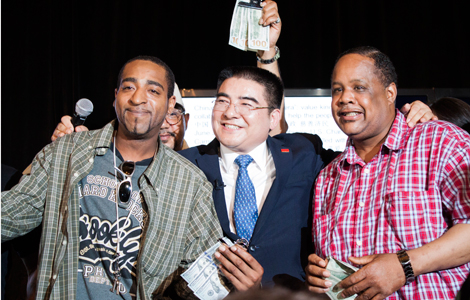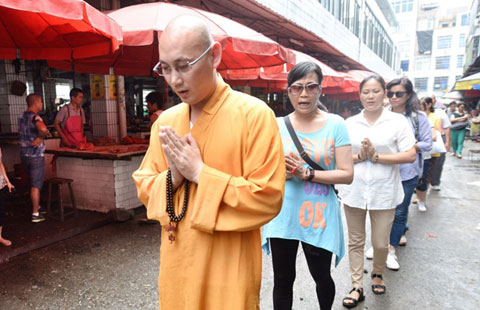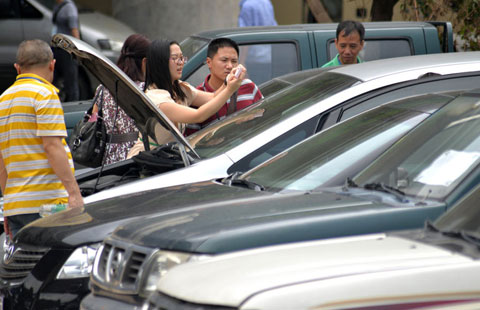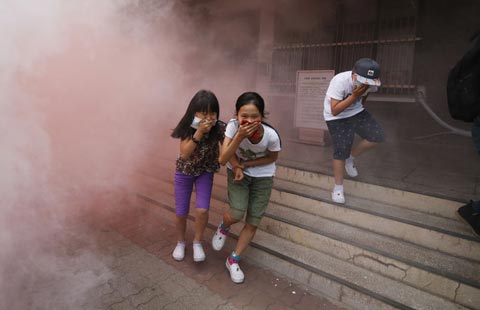Top hospitals abroad target nation's rich
Updated: 2014-06-27 04:28
By SHAN JUAN (China Daily)
|
||||||||
|
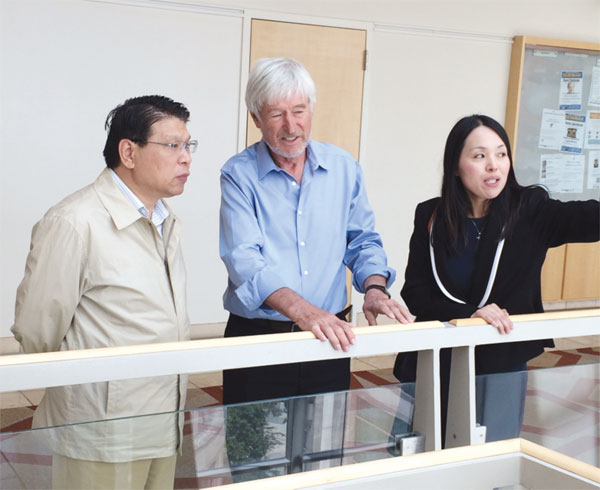 In this file photo taken in May, Hope Zhu (right), founder of More Health, tours with her Beijing guest Xing Gao (left) at the lab of Regis Kelly, chairman of bioscience incubator QB3 and a neuroscientist at University of California San Francisco. Provided to China Daily |
Leading hospitals overseas are setting their sights on newly rich Chinese seeking quality medical services.
Melissa Goodwin, international department director at the Mayo Clinic, a medical practice in the United States with scores of hospitals and clinics, visited China last month to woo patients.
"We've seen a steady increase in Chinese patients in the past five years, but the increase has been really significant in the past two years, jumping by more than 100 percent," she said.
Last year, Mayo received nearly 200 Chinese patients, with 25 to 30 percent of them referred by agencies, she said. The rest were self-referred.
Real estate tycoon Pan Shiyi, chairman of Soho China, was one of the patients who checked in for a comprehensive physical examination.
"It's quiet and orderly at Mayo. I had to wait in line before various checkups, but the staff are so nice and patient," he said on his micro blog.
The package Pan signed up for costs about $7,000.
Goodwin said, "Chinese patients have unique needs and expectations, so we have been learning how to meet these and this includes interpretation services, international travel and accommodation in the US.
"Our international service department is in the process of understanding how we'll further meet these needs."
She said some Chinese patients used to have too many tests in China without necessarily seeing physicians. "It's somewhat the reverse at Mayo, where tests are ordered only if necessary and after a physician's careful evaluations."
Goodwin said most of the patients opt for cardiovascular, neurology and cancer treatments, adding, "Some of them were becoming quite sick, with complex problems."
She declined to disclose the average cost for Chinese patients, but said fees are the same for overseas and domestic patients.
A deposit of $5,000 to $6,000 is required for overseas patients before initial consultation and tests.
Goodwin said Mayo has launched a Chinese-language website and also provides interpretation services. "Chinese patients can easily schedule appointments online," she said.
Other renowned hospitals outside the Chinese mainland, including the Cleveland Clinic in Ohio, the MD Anderson Cancer Center in Houston and the Taipei Chang Huang Memorial Hospital in Taiwan are also poised to welcome mainland patients.
MD Anderson has launched a Chinese-language version of its website, while the Cleveland Clinic invited Chinese media to attend its patient-experience summit this month in an attempt to inform Chinese patients about its care model.
Gilbert Mudge, CEO of Partners HealthCare International, a US medical system comprising Massachusetts General Hospital and Brigham and Women's Hospital, which are both in Boston, said, "The Chinese market is important for us and we've been trying to know more about patients' needs."
During a visit to Beijing this month, Partners launched a cancer evaluation services program with a local agency, helping to refer Chinese patients abroad for medical services.
The program provides access to evaluation and treatment at the two hospitals for Chinese cancer patients.
Liu Yuanli, who heads the public health department at the Chinese Academy of Medical Sciences and Peking Union Medical College, said it is always good to have more choices.
But he warned Chinese patients to conduct careful research to pick the right institution.
"There are US hospitals that charge a lot but are not highly competent," said Liu, who lived and worked in the US for years. "Local care is ideal in most cases," he said.
Dwight Clark, a preventive cardiologist at US-Sino HeartCare in Beijing, said wealthy Chinese are more demanding and deserve high-quality medical care.
But he said medical tourism also involves risks. "You never know who will treat you and physicians at all institutions vary in their knowledge and skills," he said.
"Secondly, follow-up, which is essential for quality care, is non-existent or extremely difficult," he added.
shanjuan@chinadaily.com.cn
- Illegal drugs go up in smoke in Guangdong
- PLA vessels join Pacific naval drill for the first time
- Relatives unmoved by new search zone for jet
- Hebei envisions integrated traffic network by 2020
- 3D paintings entertain people in Hong Kong
- Officials deny planning to turn 600 colleges into senior vocational schools
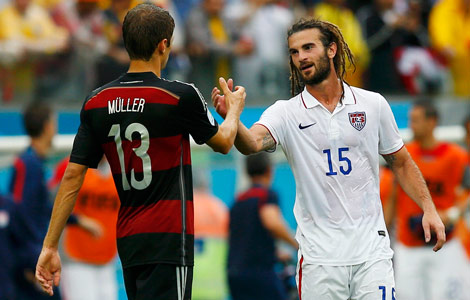
 Germany, US sail into knockout stages in Recife rain
Germany, US sail into knockout stages in Recife rain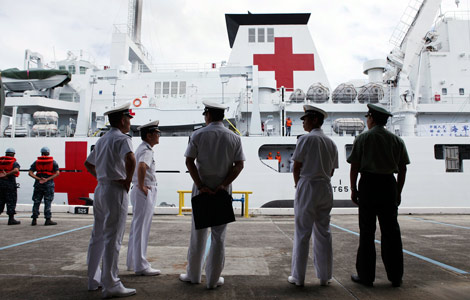
 PLA ships arrive in Hawaii for naval exercise
PLA ships arrive in Hawaii for naval exercise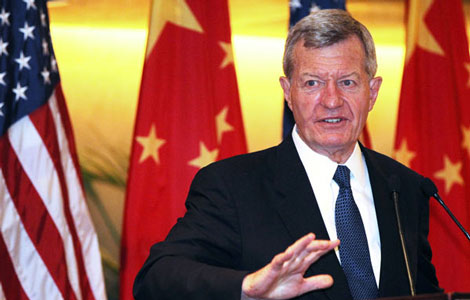
 Baucus: Investment pact opens a new chapter
Baucus: Investment pact opens a new chapter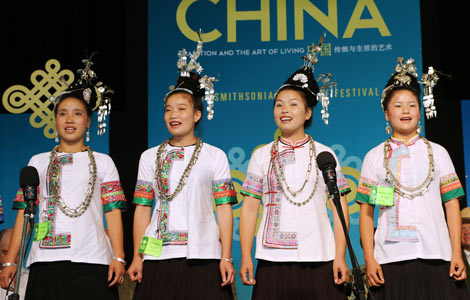
 2014 Smithsonian Folklife Festival kicks off in DC
2014 Smithsonian Folklife Festival kicks off in DC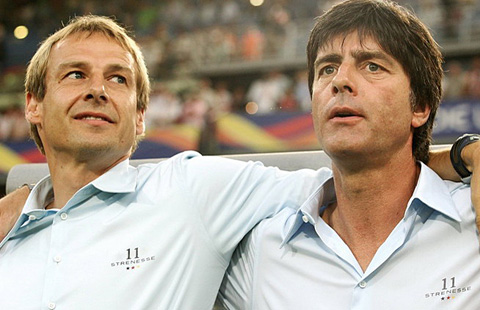
 Germany vs USA - The battle of two masterminds
Germany vs USA - The battle of two masterminds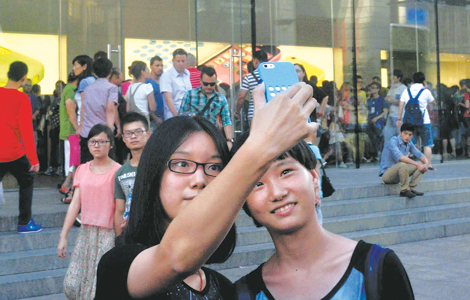
 Apple to launch bigger iPhones to reignite sales
Apple to launch bigger iPhones to reignite sales
 Xunlei IPO on Nasdaq raises $88m
Xunlei IPO on Nasdaq raises $88m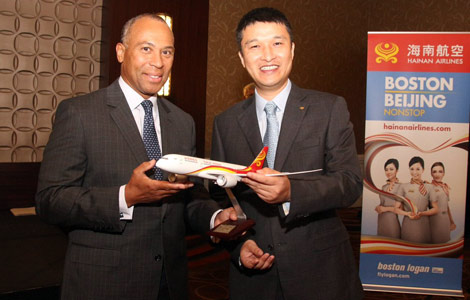
 Beijing, Boston are just 13 hours apart
Beijing, Boston are just 13 hours apart
Most Viewed
Editor's Picks
|

|

|

|

|

|
Today's Top News
Top hospitals abroad target nation's rich
PLA vessels join Pacific naval drill for the first time
Recycling tycoon criticized for charity event in NY
Envoy rejects a 'zero-sum' strategic race
Chen Guangbiao's charity event provides lunch, no cash
Google unveils new products
Overseas services boosted by Alipay
Opinion: Fine twist in Sino-US military ties
US Weekly

|

|
